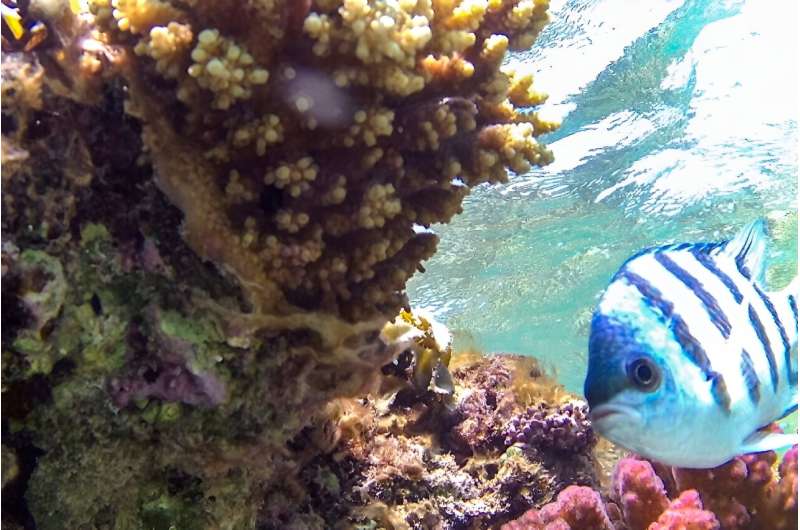This article has been reviewed according to Science X's editorial process and policies. Editors have highlighted the following attributes while ensuring the content's credibility:
fact-checked
reputable news agency
proofread
Countries pledge to raise $12 billion to help coral

A coalition of 45 countries pledged Tuesday to raise $12 billion for conservation and restoration of coral reefs, which are threatened worldwide by the effects of climate change.
The "Coral Reef Breakthrough" was announced by a network of nations that account for three-quarters of the world's coral reefs.
It includes a pledge to double the area of coral reefs under protection from the current estimate of around 60,000 square kilometers (23,000 square miles) and restore some 10,500 sq km.
The plan, announced by the International Coral Reef Initiative, includes a headline pledge to secure $12 billion in investments from public and private sources by 2030.
"This investment will enable more effective coral reef management including water quality management, coastal management, and local and regional regulations," the group announced.
Still, that figure compares with the estimated $174.5 billion a year that a 2020 study estimated was needed to plug the gap in funding for ocean conservation more broadly.
"The initiative is important and timely," said David Booth, a professor of marine ecology at the University of Technology Sydney.
However, "$12 billion is a very small sum to make a global impression, it will need to be used judiciously", he told AFP.
Restoration of reefs "will be prohibitively expensive over the sorts of scales needed to save coral reefs", he added, pointing out that climate change is the clear driver of most reef loss.
"Initiatives to curb fossil fuel use are the most critical for coral reefs."
The pledge comes with coral around the world under particularly acute stress because of record warm seas this year.
Marine heat waves—episodes of abnormally high water temperatures—have become more frequent and intense.
Oceans have absorbed 90 percent of the excess heat produced by human activity since the dawn of the industrial age, according to scientists.
This excess heat continues to accumulate as greenhouse gases build up in the Earth's atmosphere, mainly from burning oil, gas and coal.
Warmer water can cause stressed corals to expel the algae that live in symbiosis with them, providing them with nutrients and giving them color.
This bleaching process can result in coral death if temperatures remain too high for the algae to return, devastating the ecosystems that rely on reefs.
Mass bleaching has already been reported this year in Florida, with concern that the worst may be ahead because the El Niño seasonal weather pattern is often associated with bleaching events.
© 2023 AFP





















